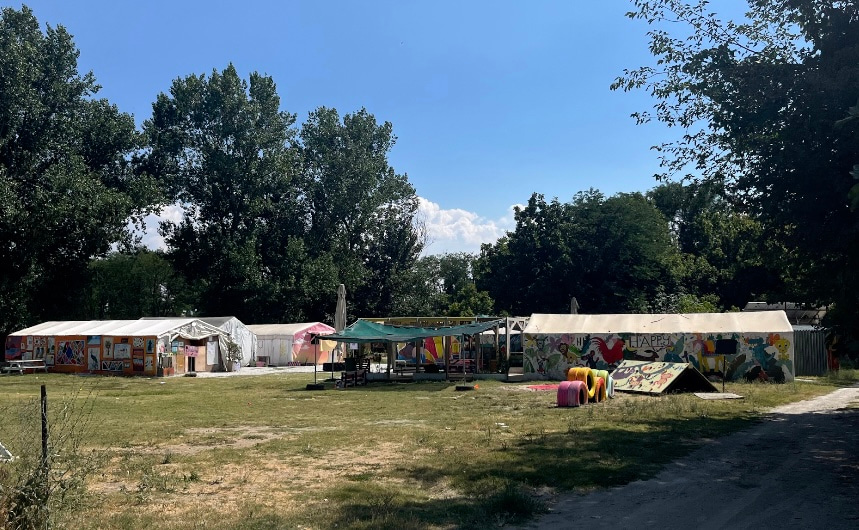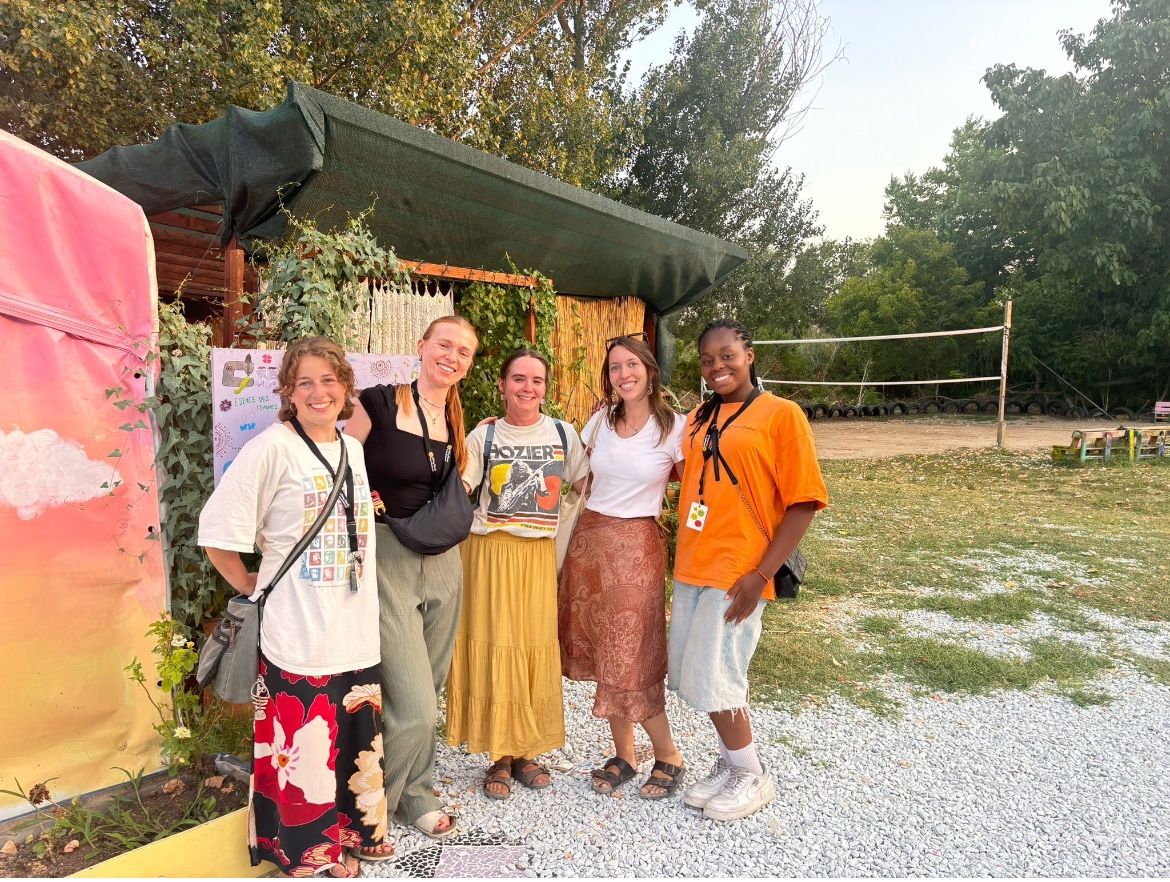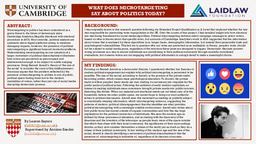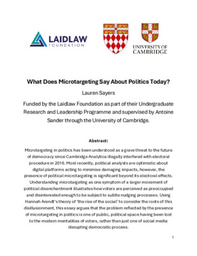Permanence in the Temporary: Learning about Leadership from a Refugee Community Centre in Serres, Greece.

Arriving in Greece, I was terrified of spending 2 months in a totally new city, with no knowledge of the language, and living with seven people I had never met before - my friends and family will tell you that, as much as I tried to get myself excited for the adventure, it was not something I was looking forward to. For the first few days I mainly kept to myself, hiding from the near-forty degree heat and my very welcoming but inevitably intimidating flatmates. However, after these two days of adjusting to my new environment, I started my first working week, and everything fell into place.
Every week, the LHI visiting volunteers, managers and directors start with a team meeting on a Wednesday afternoon. We start with an ice-breaker activity, and everyone shares their name, their pronouns and the programme(s) they work on at the community centre. We then work through the schedule for the upcoming week where volunteers can opt into their preferred morning shifts and are given details about that week's training sessions and any unusual working hours. I had been placed in the 'Female Friendly Space' Programme for my stay and so, after the meeting, I followed my manager down to 'The Field' for the first time.
The Field is an immediately beautiful place. It is consistently filled with music and laughter and movement both inside the tents and in the outside area. As you enter the centre, just off a road that leads directly to two refugee camps, you walk through a playground that has been built by volunteers over time from car tyres and scrap wood, painted with bright colours and animal figures. All the tents are similarly brightly coloured, decorated with sweeping sunsets and butterfly gardens and the 'ABC's all painted by community volunteers (camp members who give time to the centre) and visiting volunteers (people in my position coming to volunteer for a set period of time). The 'Children Friendly Space' tent is always delightfully overrun with excitable children with craft activities inside and field games outside; the 'Education' tent opposite runs hourly language classes at various levels; the 'Arts and Recreation' tent at the back of the field schedules fitness classes and open gym sessions for women and men, and has an open sports field and shaded board game area attached where intense tournaments take place every day; the 'Professional Development' tent becomes a barbershop on some days, a sewing workshop on others and a hair and makeup salon at the weekends; and the 'Female Friendly Space' tent follows a weekly schedule of different craft and salon activities.
Inside FFS, the walls are covered with artwork that the women have made on painting days or craft days, and there is a cabinet filled with bags of wool marked with women's names so they can work on ongoing crochet projects. In the back corner, there are two sewing machines that are always being used to make the most impressive garments from scratch. The most popular day in the space by far is nail day (Saturdays) where the women execute complex nail designs with gel nail polish and UV nail lamps - something I was very unfamiliar with before my time in Greece. Around 30 women crowd over each others hands for hours and then call you over to show off their new manicure: it is a beautiful scene of pride and dignity and autonomy. I feel so honoured to have spent so much time with the most wonderful, funny, beautiful women in that space. We didn't share a language really at all, and yet felt so close to one another, which really reassured me about the human ability to connect.
By the time my first working week was over, I had settled into the comforting rhythm of morning shifts sorting donations at the warehouse, or building things at the field, and afternoon shifts inside FFS. I had also settled into the social scene, getting to speak to more and more volunteers who were students like me, and spending the evenings with my lovely flatmates. For my first days off (we take a weekend on Mondays and Tuesdays), I went on a ten hour hike up one of the many mountains that surround Serres with 2 girls my age, one from Australia and one from the US. Despite the physical challenge of the activity, I remember feeling really at ease because I was confident in my new friendships. The following weeks looked very similar - just getting really immersed into the work each week and finding fun things to do with the team at the weekends.
Being a student of politics and anthropology at such an intense university, I had been craving practical work - something physical and face-to-face that actually felt impactful. This year in particular, my studies of international law had left me totally disillusioned by the state of global politics, and constantly imagining the lives of the people who fall through those gaps where the law repeatedly fails. But in Serres, that sort of low-level constant guilt and creeping anxiety that I was feeling in my everyday life at university was gone - not because I felt I had solved someone's problems or made everything better, but simply because I was confronting the reality of something that I usually study from a distance. It was refreshing to be reminded just how resilient the human spirit is, how people will never let go of their sense of meaning and livelihood, and can always make something out of nothing. Of course it wasn't always easy to be at the centre, and we had significant problems with children's behaviour and interpersonal tensions between adults, but there was always a sense that it was a privilege for the community members to focus on issues that were relatively small - in that they never involved anyone's safety being threatened. Part of connecting with people is experiencing tension and frustration at times, and our role was really to facilitate an environment where people could experience connection in safety, and so even the harder times would remind you of how much good LHI does. I cannot recommend volunteering at Lifting Hands International enough. I spent a long time trying to choose a charity for my LIA project and am so sure that I made the right choice.
I found the criteria of the LIA project raised a lot of questions for me: asking students specifically to volunteer in an unfamiliar environment seemed to contradict the aims of a lot of the charities that I would have most wanted to work with, and I found this difficult to remedy. Because I did not want to enable 'voluntourism', I was conscious that the presence of someone unfamiliar with the environment that they are working within can actually do more harm than good. For example, in any grassroots community action project, lived experience within that community is often the single most valuable quality a volunteer can bring to the table, and so I did not feel comfortable reaching out to charities for which I could imagine the presence of a foreign volunteer would actually be unhelpful. I found this very difficult for a period because I could not think of a way that I could make a valuable contribution to a social action project if I was not integrated into that social group. This meant LHI was really suited to what I saw to be an appropriate way to volunteer abroad. For LHI, it is actually productive to have all the volunteers be outsiders: as none of the volunteers are from Greece, just like none of the refugees are from Greece, there is at least a degree of common ground and shared unfamiliarity. This was really driven home for me when I was asked on my first day where I was from by one of the women in FFS. When I said 'England', she replied 'I am from Iraq'. That simple recognition that we were both away from the place that we are 'from' (although of course under vastly different circumstances) I could tell was really valuable to the community members. If all the volunteers had been from Greece, it might have exacerbated the 'outsider' feeling for the community members, and so I was very happy to have found a setting where I felt my contribution was enhanced, not impeded, by my being from another country. It is only because the centre is a temporary environment for everyone there, both visiting volunteer and community member, that it can fulfil its ongoing, permanent purpose of providing psycho-social support to those in Serres' refugee camps.
I learnt so much about leadership - not only in my formal weekly training sessions on topics like international migrant law and trauma informed operation - but through living in the structure of a charity and experiencing how decisions get made, and the measures that are put in place to maintain a safe and healthy working environment in such a challenging context. I was so inspired everyday by the people around me - both volunteers and community members - and I really hope to be able to go back one day.



Please sign in
If you are a registered user on Laidlaw Scholars Network, please sign in